 Market Insights
Market Insights
 2025-05-19
2025-05-19
The Republic of Türkiye is a transcontinental country spanning both Europe and Asia, encompassing the Anatolian Peninsula in Western Asia and the Eastern Thrace region of the Balkan Peninsula in Europe. Strategically located, Türkiye is bordered by the Mediterranean Sea to the south and the Black Sea to the north. Its capital is Ankara, while its largest city is Istanbul. Türkiye has a total population of approximately 86 million, with 97% residing in the Asian part (Anatolia) and 3% in the European part (the Balkans). This article provides a practical guide for businesses looking to enter the Turkish market, focusing on three dimensions: Türkiye's import and export data in 2024, major traded products, and customer development strategies.

I. Türkiye's Import and Export Status in 2024
Understanding the trade trends of the target country is the first step in developing an import-export market. In 2024, Türkiye's trade demonstrated signs of structural adjustment:
Exports reached USD 261.8 billion, a year-on-year increase of 2.4%. Although the growth rate slowed, the share of high value-added products increased.
Imports totaled USD 344 billion, a year-on-year decrease of 5%, reflecting tightened domestic demand and the initial success of import substitution policies.
The trade deficit narrowed significantly to USD 82.2 billion, down 22.7% year-on-year, though reliance on energy imports remains a major challenge.
II. Major Import and Export Products of Türkiye
The key to developing Türkiye's import-export market lies in accurately matching supply with demand.
1. Import Structure
·Energy: Crude oil (25%), natural gas (18%)
·Machinery and Equipment: Industrial machine tools, electric motors (12%)
·Chemical Products: Plastic raw materials (9%)
2. Export Structure
Traditional Strengths:
·Textiles (14% of total exports)
·Agricultural products such as hazelnuts and cherries (accounting for over 60% of global exports)
Emerging Highlights:
·Electric Vehicles: Export volume surpassed 350,000 units in 2024, up 40% year-on-year
·Home Appliances: Refrigerators and washing machines' market share in Europe increased to 22%
·Steel Structures: Gaining ground in the Middle East infrastructure market due to cost advantages
3. Entry Points for Developing the Import-Export Market
·Supplying key components such as batteries and chips to Turkish automobile manufacturers
·Partnering with food processing companies to export high-end packaging machinery or cold chain technologies
·Participating in steel deep-processing projects by providing specialty steel materials or surface treatment technologies
III. How to Develop Customers in Türkiye?
Entering the Turkish import-export market requires a combination of online and offline channels, along with a well-targeted customer development strategy.
1. Offline Participation and Partnerships
Attend industry trade fairs in Türkiye, especially in Istanbul, to directly connect with local buyers. Alternatively, collaborate with local agents or distributors who can help promote your products using their market experience and networks.
·Istanbul International Industry Fair: One of the largest and most influential industrial exhibitions in Türkiye, held biennially. It covers various sectors such as machinery manufacturing, automotive components, electronics, and energy. Both international giants and local Turkish companies participate in this event.
·Istanbul International Textile Machinery Exhibition (ITM): A globally renowned event for the textile machinery industry, attracting numerous textile enterprises and buyers from Türkiye and surrounding regions. It offers an excellent platform for Chinese textile machinery and component companies to showcase their latest technologies and establish direct cooperation with local businesses, boosting brand visibility and influence in the Turkish textile sector.
·Türkiye International Automotive and Parts Fair (OTOBAN): One of the most important exhibitions for Türkiye's automotive industry. It brings together vehicle manufacturers, component suppliers, and aftermarket service providers. Chinese auto parts companies can use this platform to display advanced automotive technologies and products, align with local automotive industry players, and expand their customer base and sales channels.
2. Online Platforms
(1) Major Turkish E-Commerce Platforms
·Trendyol: https://www.trendyol.com/en
One of Türkiye's largest e-commerce platforms, with a massive user base and diverse product categories. Chinese sellers can register on the platform to sell directly to Turkish consumers, increasing store traffic and sales.
·Hepsiburada: https://www.hepsiburada.com/
A mainstream Turkish e-commerce site offering a wide range of products including electronics, beauty, and baby care. It features a user-friendly interface and high user loyalty.
Sahibinden: A well-known classified ads website in Türkiye, offering both new and second-hand goods across various categories. It ranks among the top platforms in terms of popularity and sales.
·GittiGidiyor: https://www.gittigidiyor.com/
(2) Other Platforms for Import-Export Development
·turkeydata.com – For accessing Türkiye's import and export data
·tendata.com – For finding Turkish import and export buyers
·yellowpages.com.tr – Türkiye's Yellow Pages site
·turkindex.com – Turkish business directory
·izto.org.tr – Turkish company Yellow Pages
·telerehber.com – Türkiye's online telephone directory
3. The Fastest Platform to Find Turkish Clients
Tendata, a global trade data platform covering 228 countries and regions, offers robust data support to help you analyze the Turkish market in depth. With precise market insights, it empowers businesses to identify potential opportunities and growth prospects in Türkiye.
The platform not only intelligently matches key decision-makers at target companies but also enables efficient and precise client development, helping businesses expand into new international markets.
Example: For the automotive industry (HS Code: 870323), Tendata provides an accurate Turkish buyer database, offering a comprehensive commercial profile of importers.
>> Find More Turkish Importers <<
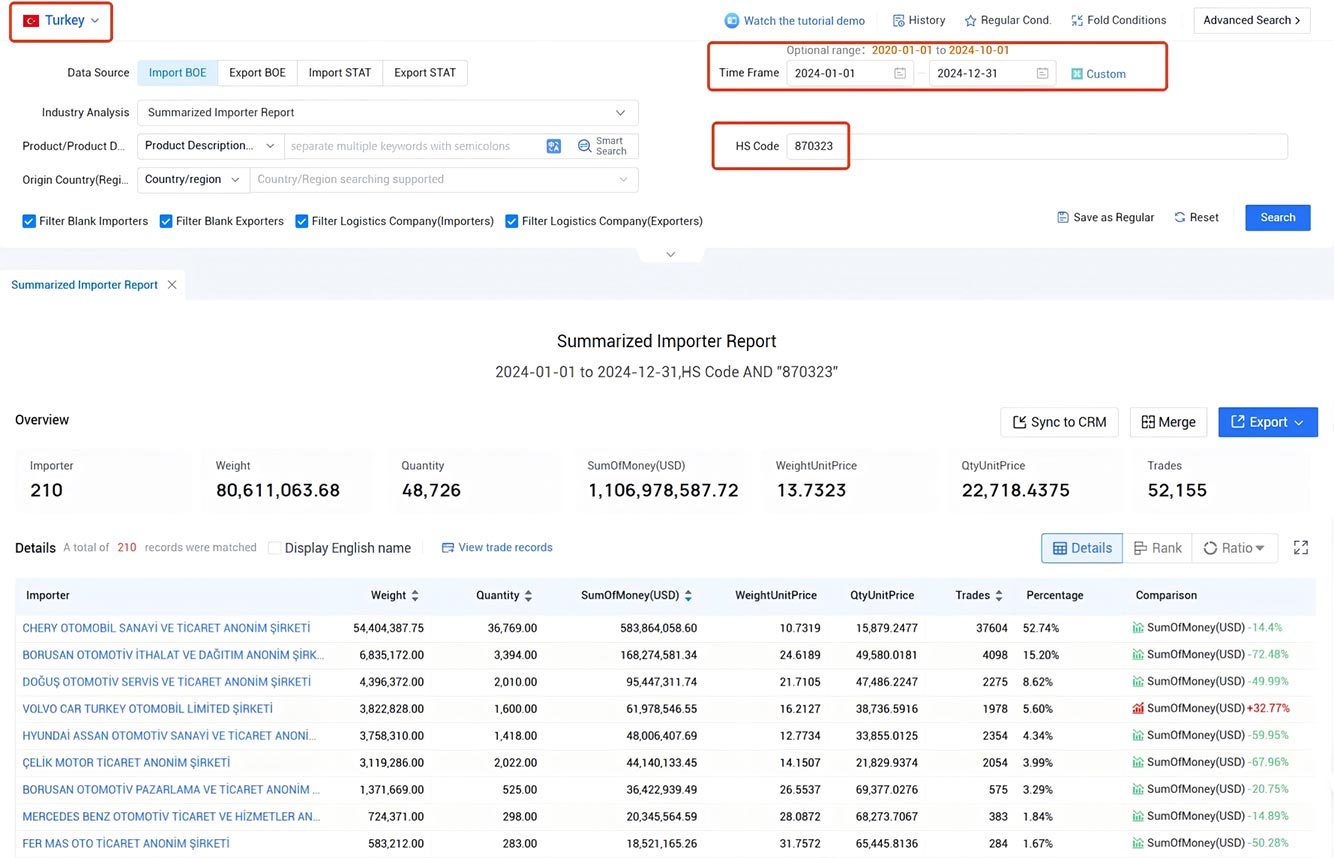
Tendata's data analysis system offers deep insights into Turkish importers' trade activities, including procurement cycles, product categories, supply chain networks, supplier partnerships, and sourcing regions—providing a data-driven foundation for your market strategy.
>> Try Tendata Data for Free <<
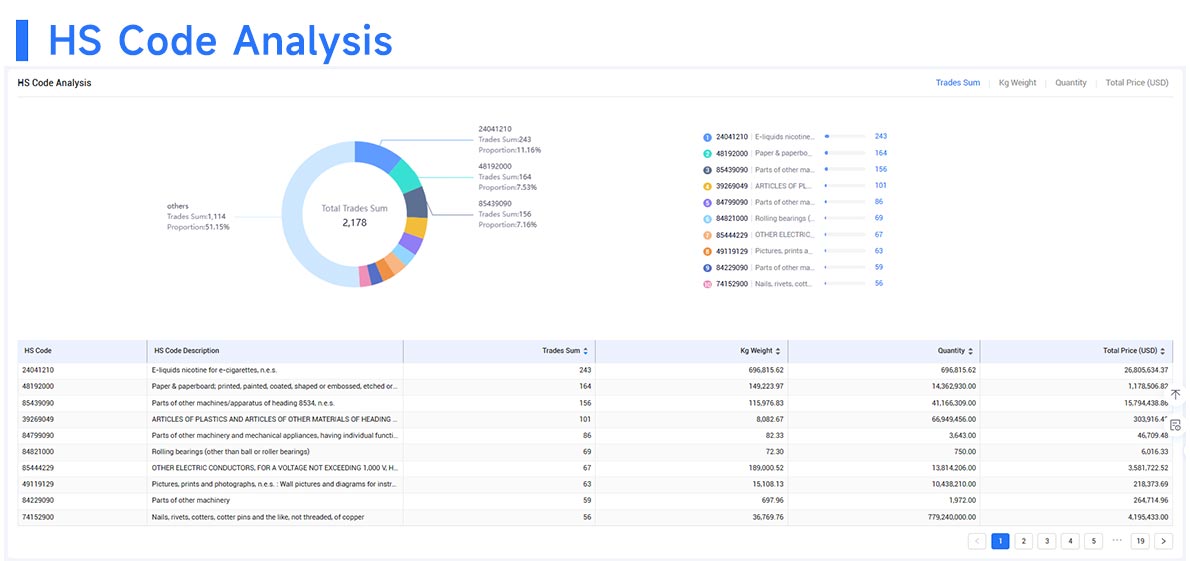
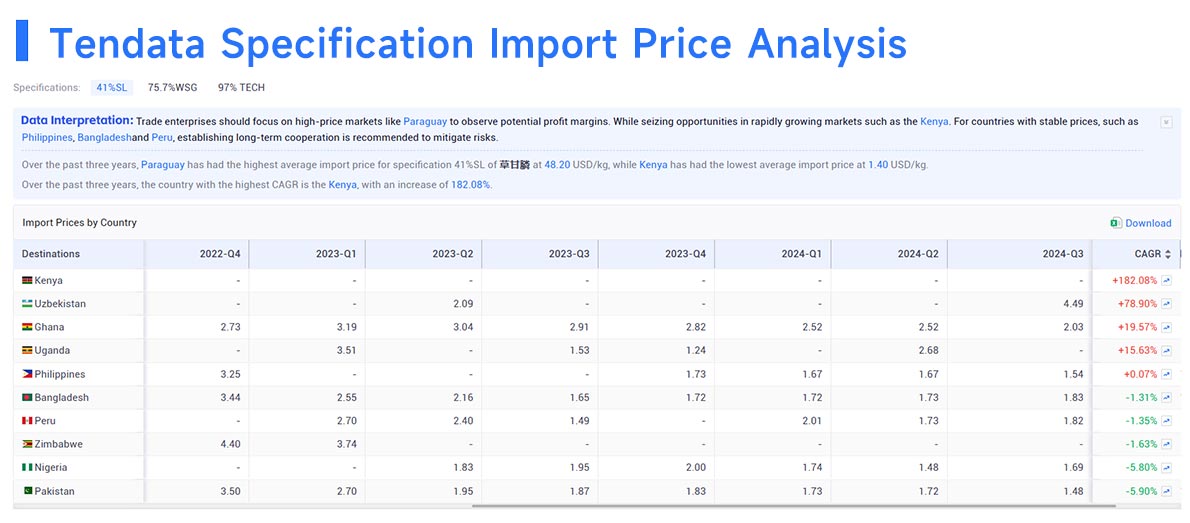
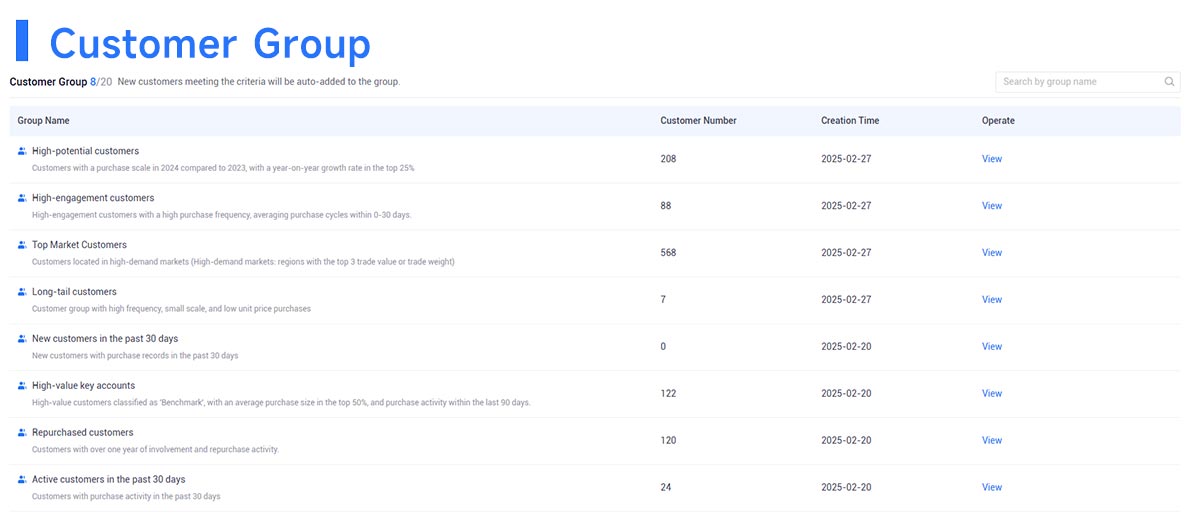
What's more, Tendata integrates a global executive database. You can access direct contact information for key decision-makers such as purchasing directors and CEOs, including emails, LinkedIn profiles, and Facebook accounts. The platform also innovatively connects with major social media networks to significantly enhance cross-border business efficiency.
>> Learn More About Tendata <<
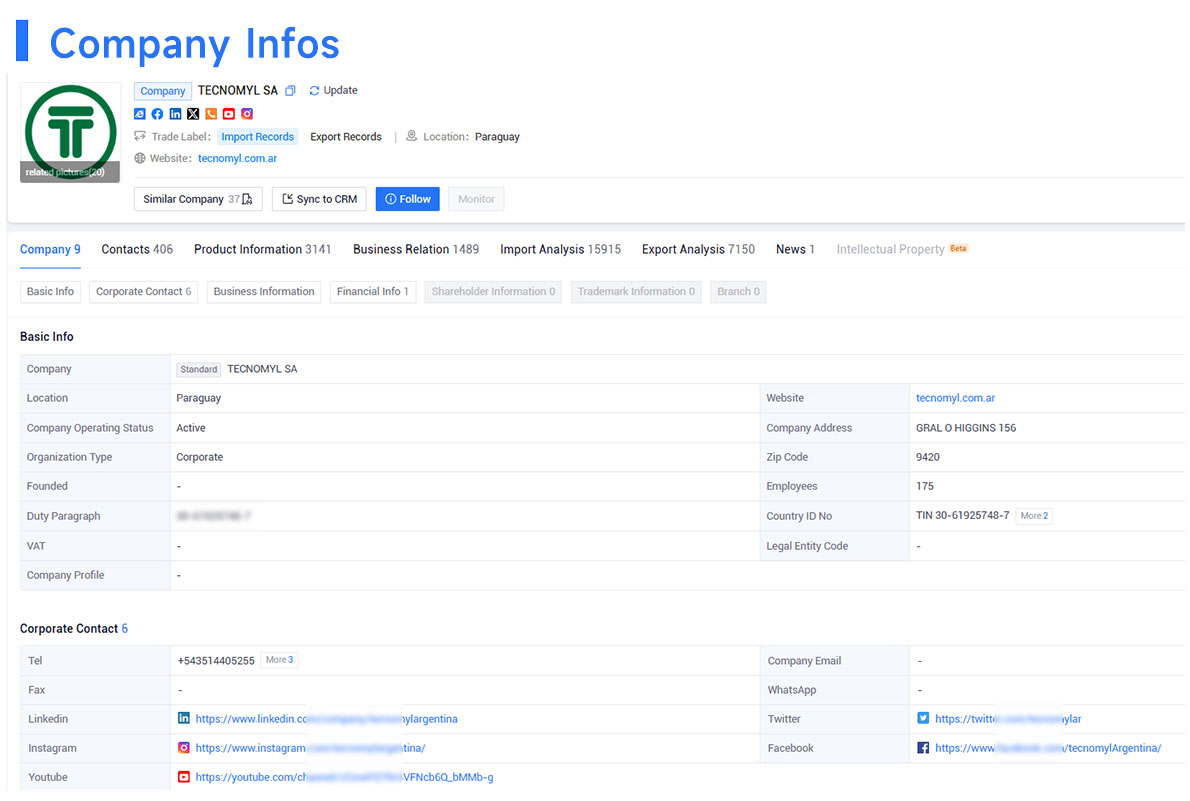
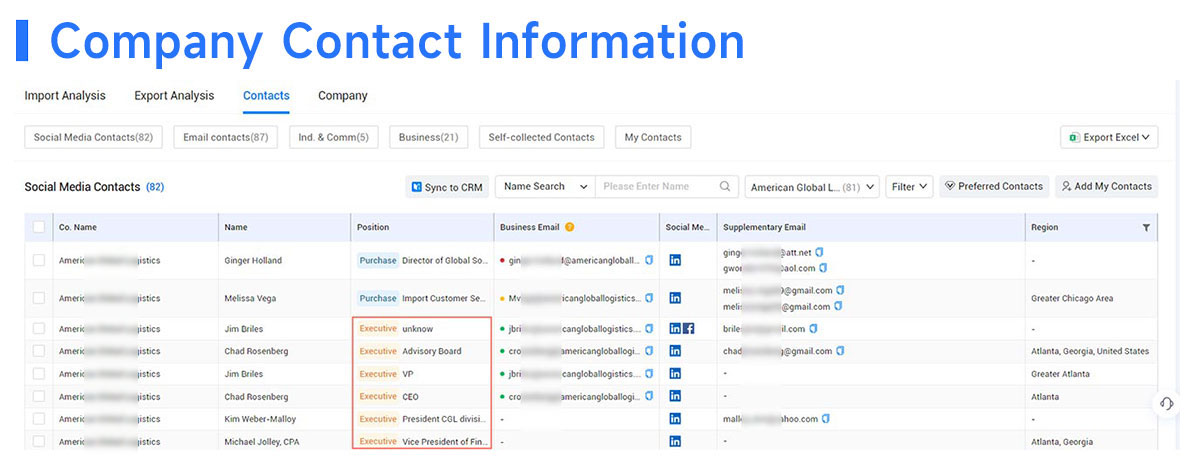
Conclusion
To develop Türkiye's import-export market, businesses should leverage a "dual circulation" strategy:
On one hand, tap into Türkiye's demand for industrial upgrading to enter the supply chain; on the other, utilize Turkish companies' regional influence to expand. Enterprises are advised to focus on "technology cooperation + localized services" and aim to evolve from simple trade to deep integration into the industrial chain within three years.
Category
Leave Message for Demo Request or Questions


 T-info
T-info T-discovery
T-discovery

 My
Tendata
My
Tendata Market Analysis
Market Analysis Customer
Development
Customer
Development Competitor
Monitoring
Competitor
Monitoring Customer Relationship
Customer Relationship





































































































































